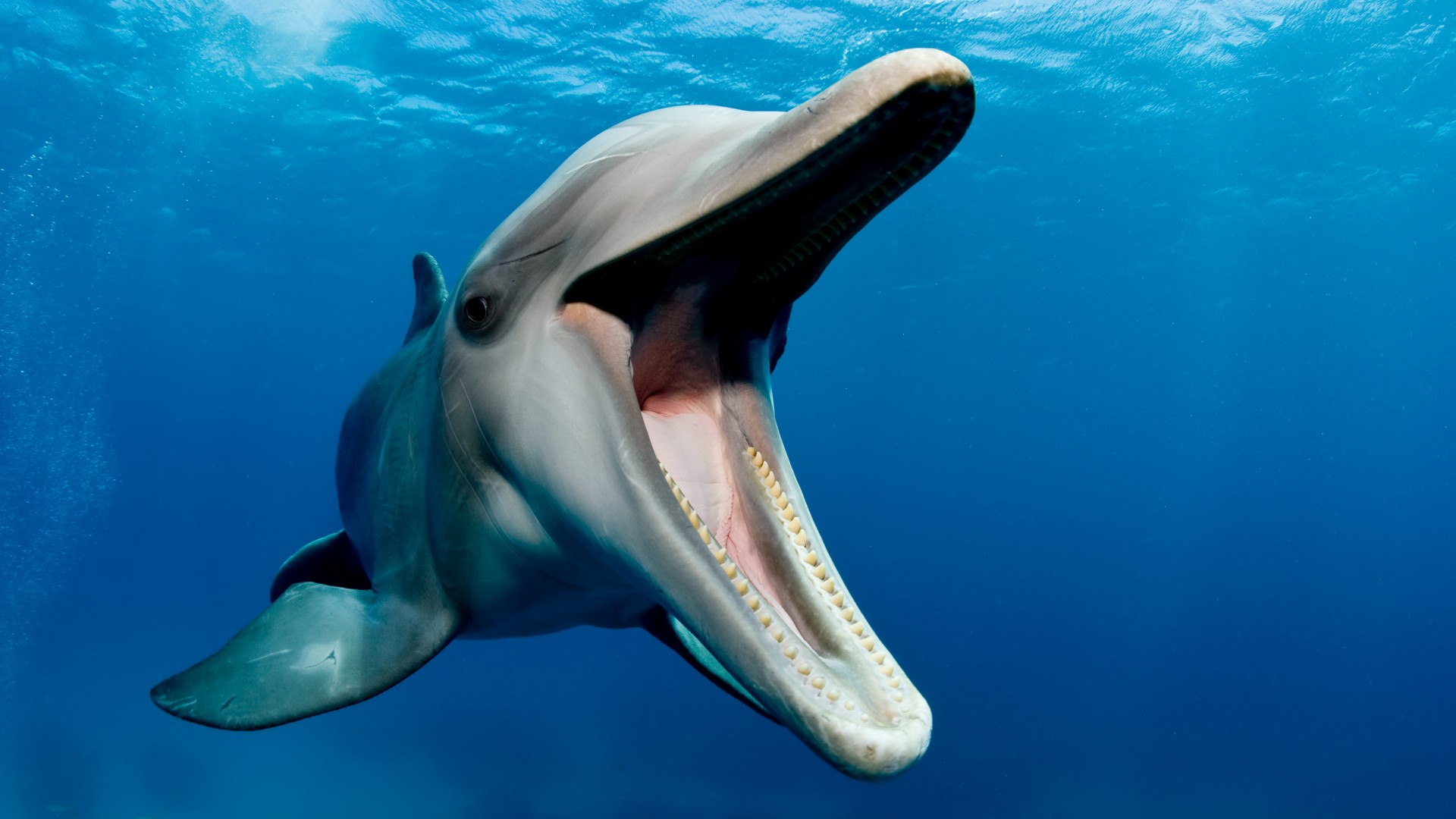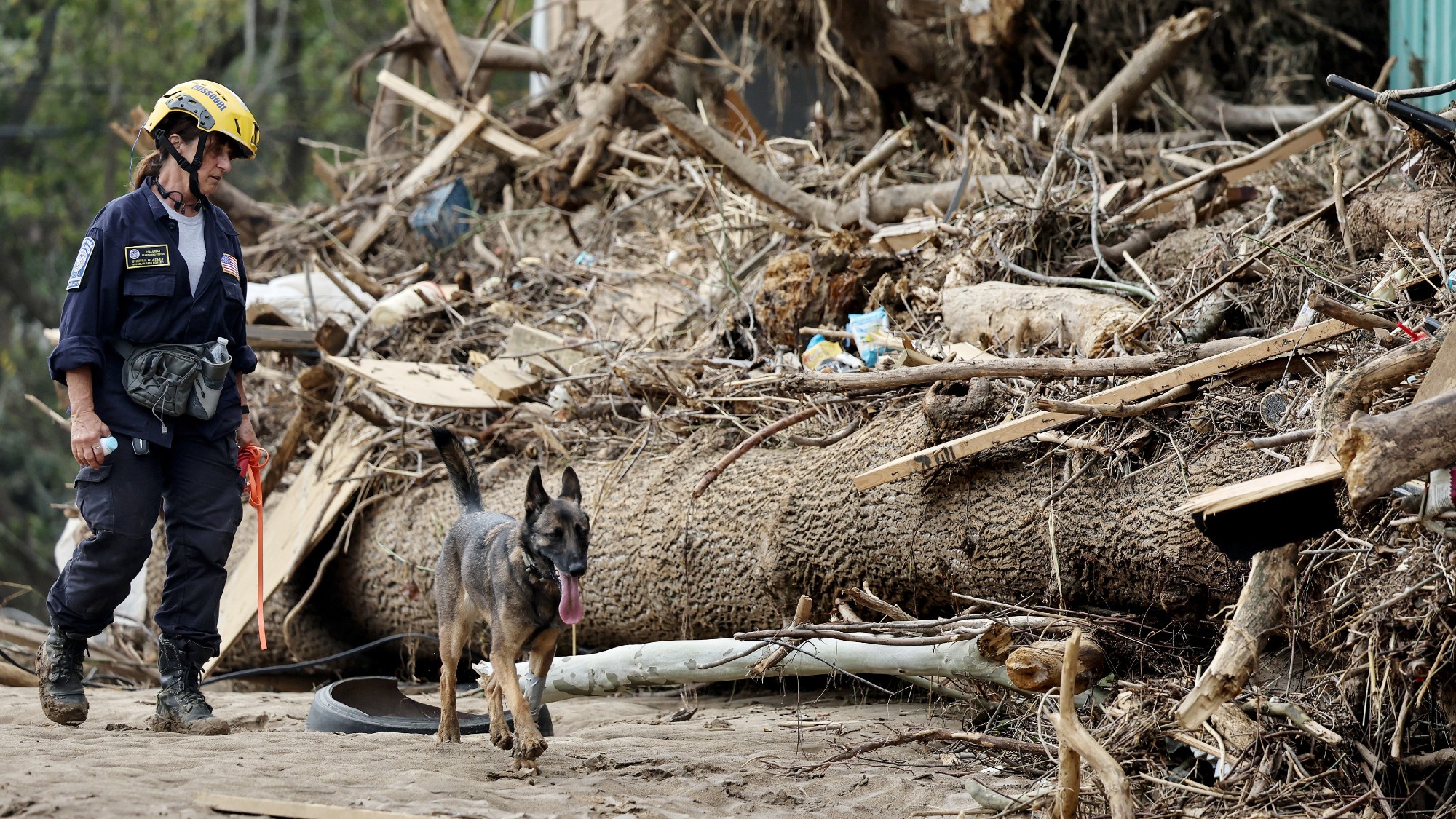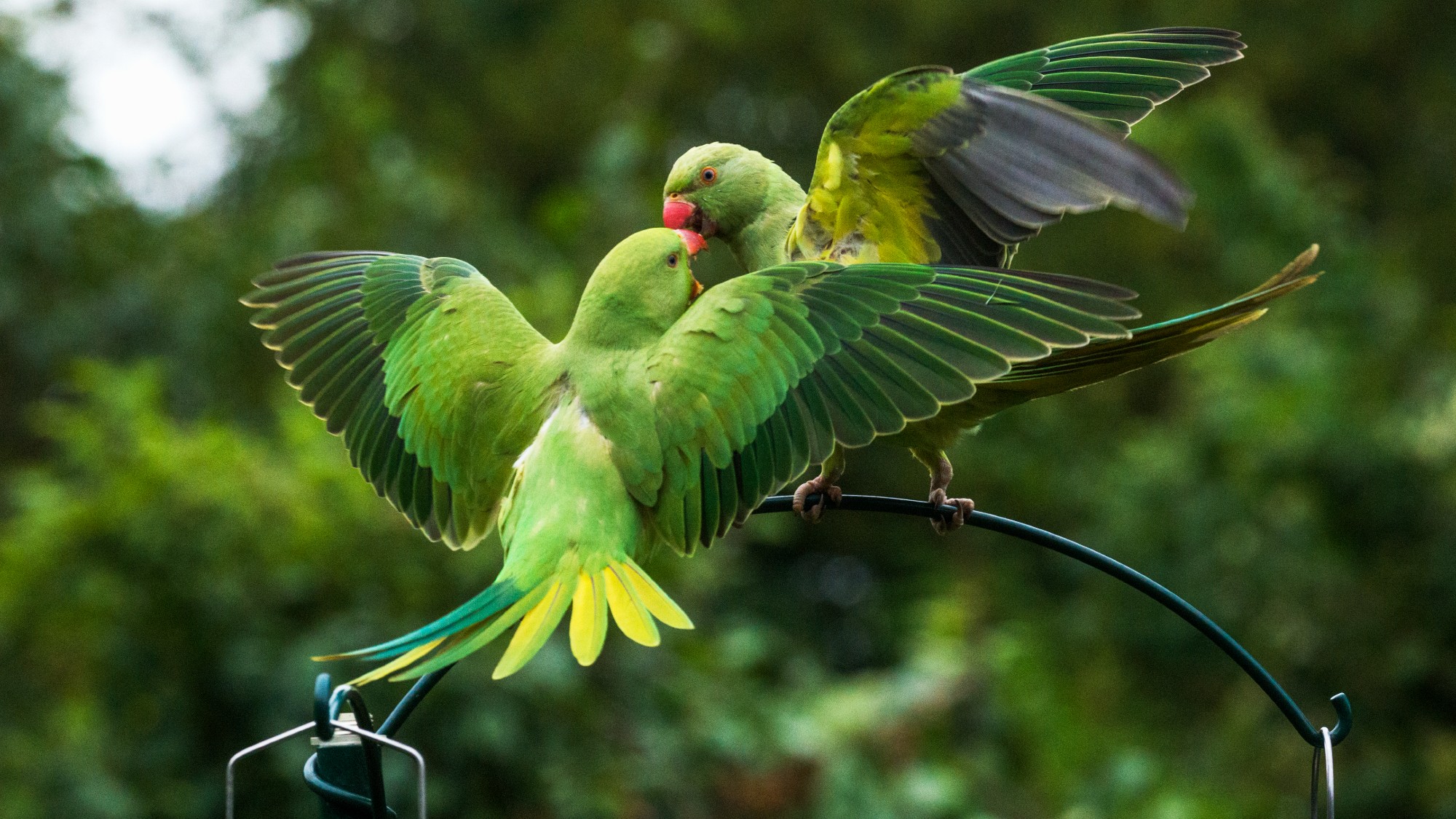Seven wild discoveries about animals in 2025
Mice have Good Samaritan tendencies and gulls work in gangs

A free daily email with the biggest news stories of the day – and the best features from TheWeek.com
You are now subscribed
Your newsletter sign-up was successful
From deep in the ocean to high in the sky and back in our own homes, animals continue to surprise us with their intelligence and sometimes bizarre behaviours. This year, scientists have uncovered more surprising facts about the animal kingdom.
Mice do 'first aid' on their friends
Humans aren't the only animals with Good Samaritan tendencies: elephants, chimps and dolphins have all been known to come to the aid of ailing members of their own species. And now mice have been observed seemingly trying to revive their unconscious companions. For the study, published in the journal Science, lab mice were placed with another mouse that had just been anaesthetised. The healthy mice were seen to pay very close attention to the drugged mouse – sniffing at it and grooming it; and then, as it slipped further into unconsciousness, pawing at the creature and nipping it, as though trying to wake it up. In a series of tests, mice also opened unconscious cage-mates' mouths and pulled at their tongues, perhaps to clear their airways. When objects were placed in the mouths of the unconscious mice, the tongue pulling usually removed it. Mice were more likely to behave in this way if the drugged mouse was familiar to them; and the mice that received this first aid tended to wake up and walk about more quickly than a control group that was left alone. As the mice were just a few months old and hadn't seen unconscious mice being tended to by other mice, the neuroscientists, at the University of Southern California, suspect that the rodents' behaviour was instinctive, rather than learnt.
How to understand your horse
Bartenders may ask them about their long faces, but horses have a wide range of expressions, researchers have found. For the study, a team at the University of Portsmouth gathered video footage of 36 horses at an equine centre in Hampshire. They then analysed the horses' facial expressions in different situations, noting how and when their facial muscles moved. They concluded that although horses have a narrower range of expressions than humans or dogs, the way they move their heads, eyes, mouths and ears does provide an insight into their emotions. For instance, if a horse lowers its head, flares its nostrils and flattens its ears, be careful because it is probably feeling aggressive; whereas if it raises its chin, opens its mouth and shows more of the whites of its eyes, that indicates playfulness. Blinking is a sign of curiosity, and a neutral expression seems to indicate that the horse is in a good mood. "This work is a game-changer for anyone working with horses," said study co-author Dr Leanne Proops. "It gives us a new lens through which to view and interpret their behaviour, ultimately leading to better care and stronger human-animal relationships."
The Week
Escape your echo chamber. Get the facts behind the news, plus analysis from multiple perspectives.

Sign up for The Week's Free Newsletters
From our morning news briefing to a weekly Good News Newsletter, get the best of The Week delivered directly to your inbox.
From our morning news briefing to a weekly Good News Newsletter, get the best of The Week delivered directly to your inbox.
Wild chimps drum to their own beat
Chimps are well known to slap their hands and feet against the buttress roots of trees to create distinctive sounds that can travel up to 1,000 metres through thick rainforest. Now, researchers have established not only that the apes drum to a rhythm, but that this rhythm varies between sub-species. Those in Uganda and Tanzania, in the east of Africa, favour a jazzy "swing" pattern – a long-short-long-short rhythm, whereas the western chimps, in Guinea and Ivory Coast, go for the evenly spaced beats that are typical of rock music. The project team gathered 371 drumming episodes across 11 groups; primatologists, rhythm scientists and acoustics experts then mapped and analysed the timing and tempo of each session, to establish that the timing was non-random, and differed according to location. The suggestion is that the beat is passed down through generations, with different groups maintaining their own traditions. Rhythm has long been viewed as a fundamental aspect of human culture – playing a role in speech, music, dance and poetry and even social bonding. That chimps also have rhythm suggests that our rhythmic sense dates back seven or planes
How dolphins express incredulity
Dolphins are known to have signature whistles with which they reveal their location and announce their presence, as if saying "I'm over here". Dolphins have also been observed seeming to reply to these calls by altering them, and whistling them back – "there you are". Now, researchers in Florida who have been decoding other non-signature whistles have identified a vocalisation that seems to indicate a query, or even incredulity. They came across it when they broadcast the signature whistles of two dolphins who were swimming right next to each other. As dolphins don't waste energy by whistling for no reason, and the sound wasn't coming from either of them, the dolphins were probably confused – and each responded by emitting what has been officially termed "non-signature whistle B", but which the researchers, at Woods Hole Oceanographic Institute, have informally dubbed "the WTF whistle". Of course, they can't be sure of its meaning, said Tom Whipple in The Times. Nevertheless, their work has led to them being shortlisted for a new $100,000 prize for research into animal communication.
Gulls are bolder in gangs
If a single gull is eyeing up your chips, you probably don't need to worry. According to a new study, the birds are unlikely to swoop if they are alone. To test how the species reacts to unfamiliar objects, researchers in Belgium gathered 54 young herring gulls who had been bred in captivity, and placed a variety of different objects (a ball, a brush and so on) next to their food bowls. They found that the birds approached their bowls much more quickly when they were in groups of four or five than if they were alone – in 3.52 seconds instead of nearly ten. They also spent longer by their food bowls. This, said the researchers, suggests that the birds are less risk averse when they are part of a crowd. So at the seaside, it is not the lone gulls you need to keep an eye out for, it is the gangs.
Human drugs are affecting fish
The anti-anxiety drugs that pollute many rivers can change the behaviour of salmon, a study has found. Researchers in Sweden attached tiny tracking devices to 279 juvenile Atlantic salmon (or smolts) before they embarked on a ten- to 13-day journey along a river to the Baltic Sea. Some were also given clobazam, a sedative prescribed for anxiety, at levels similar to those found in many rivers. It turned out that the drugged fish were more likely to complete their journey: 25% of them reached the Baltic, compared with just 10% of the others. They were also quicker at getting through hydroelectric dams that normally hinder migration. Further lab tests showed that drugged fish were less likely to seek the safety of the shoal when faced by a predator. The results suggest that the drugs make the fish more prone to taking risks, said the team; and their accumulation in the brain may have other impacts too.
A free daily email with the biggest news stories of the day – and the best features from TheWeek.com
A pet is as good as a spouse
Owning a pet makes you as happy as being married – or earning an extra £70,000 a year, a new study has found. Researchers from the University of Kent drew on data from a nationally representative survey in which members of 2,500 British households were asked how satisfied they were with their lives. It turned out that having a cat or dog was associated with an increase of three to four points, on a scale of one (completely dissatisfied) to seven (satisfied beyond measure). The team then used a technique devised by economists to translate intangible assets, such as living near a park, into monetary worth. The £70,000-a-year uplift might seem high, but with other studies assigning a similar value to catching up with friends once or twice a week, it makes sense, lead author Dr Adelina Gschwandtner told The Times. It is likely that "many people don't realise how important their pets are for them".
-
 Bad Bunny’s Super Bowl: A win for unity
Bad Bunny’s Super Bowl: A win for unityFeature The global superstar's halftime show was a celebration for everyone to enjoy
-
 Book reviews: ‘Bonfire of the Murdochs’ and ‘The Typewriter and the Guillotine’
Book reviews: ‘Bonfire of the Murdochs’ and ‘The Typewriter and the Guillotine’Feature New insights into the Murdoch family’s turmoil and a renowned journalist’s time in pre-World War II Paris
-
 Witkoff and Kushner tackle Ukraine, Iran in Geneva
Witkoff and Kushner tackle Ukraine, Iran in GenevaSpeed Read Steve Witkoff and Jared Kushner held negotiations aimed at securing a nuclear deal with Iran and an end to Russia’s war in Ukraine
-
 Why broken water companies are failing England and Wales
Why broken water companies are failing England and WalesThe Explainer With rising bills, deteriorating river health and a lack of investment, regulators face an uphill battle to stabilise the industry
-
 How will climate change affect the UK?
How will climate change affect the UK?The Explainer Met Office projections show the UK getting substantially warmer and wetter – with more extreme weather events
-
 Are we entering a ‘golden age’ of nuclear power?
Are we entering a ‘golden age’ of nuclear power?The Explainer The government is promising to ‘fire up nuclear power’. Why, and how?
-
 Europe's heatwave: the new front line of climate change
Europe's heatwave: the new front line of climate changeIn the Spotlight How will the continent adapt to 'bearing the brunt of climate change'?
-
 Storm warning: Will a shrunken FEMA and NOAA be able to respond?
Storm warning: Will a shrunken FEMA and NOAA be able to respond?Feature The U.S. is headed for an intense hurricane season. Will a shrunken FEMA and NOAA be able to respond?
-
 Should Los Angeles rebuild its fire-prone neighbourhoods?
Should Los Angeles rebuild its fire-prone neighbourhoods?Talking Point The latest devastating wildfires must be a wake-up call for Los Angels to 'move away from fire-prone suburban sprawl'
-
 England's great parakeet invasion
England's great parakeet invasionThe Explainer How did a parrot from the Himalayas become a common sight in southeast England?
-
 Decarbonising the national grid
Decarbonising the national gridThe Explainer In theory, Britain's electricity grid will be carbon neutral by 2035. What will that involve? Is it even possible?